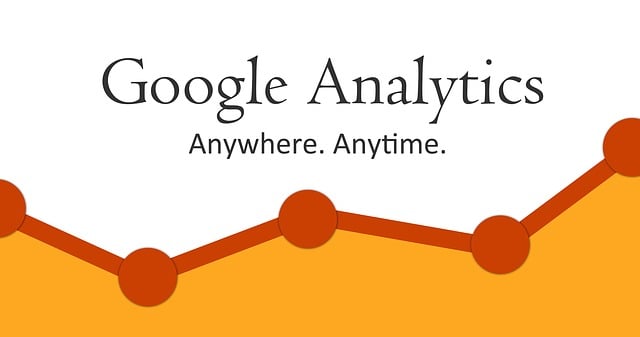Professional SEO Programs are revolutionizing digital marketing by focusing on on-page SEO, crucial for online success in today's digital landscape. These programs teach advanced strategies like keyword research, meta tag optimization, and content creation to appeal to search engines. By mastering these techniques, businesses can boost rankings, increase relevant traffic, and enhance user experience. Key aspects include optimizing title tags, meta descriptions, structured data markup, fast loading speeds, mobile optimization, and high-quality content. Professional SEO Programs provide tools for tracking KPIs like organic traffic growth, keyword rankings, and bounce rates using analytics platforms to make data-driven optimizations.
“Unleash your website’s full potential with our comprehensive guide to On-Page SEO. In today’s digital landscape, understanding search engine optimization is paramount for online success. This article serves as your university, offering an in-depth exploration of essential strategies. From laying the foundation with keyword research and optimizing meta tags to enhancing user experience, we cover it all. Furthermore, discover how professional SEO programs empower marketers with advanced techniques. Master these on-page tactics, and watch your website’s visibility skyrocket.”
Understanding On-Page SEO: The Foundation of Digital Visibility

In the digital age, where online visibility is key, On-Page SEO stands as the foundation for any successful online presence. It’s a strategic approach to optimizing individual web pages to rank higher and earn more relevant traffic from search engines like Google. At its core, this involves understanding how search algorithms interpret and evaluate page content, including keywords, headings, meta descriptions, and overall user experience. Professional SEO programs emphasize the importance of on-page factors as the first step towards achieving top search engine rankings.
By focusing on these aspects, businesses can ensure their websites deliver valuable, relevant information to users while also signaling to search engines that they are authoritative sources. This is where the real magic happens—turning visitors into customers by providing a seamless and satisfying digital experience that aligns with their search intent. Effective on-page optimization is not just about stuffing keywords; it’s an art of crafting content that naturally incorporates relevant terms, making each page uniquely optimized yet cohesive within the broader website structure.
Key Components of Effective On-Page Optimization Strategies

In the realm of digital marketing, on-page SEO is a cornerstone for any successful online presence, and professional SEO programs emphasize its paramount importance. Effective on-page optimization strategies involve a meticulous dance between various components that work in harmony to elevate your website’s visibility. The foundation lies in keyword research, where identifying relevant, high-value keywords becomes the compass guiding your content creation. These keywords are then artfully woven into strategic locations, including titles, headings, meta descriptions, and throughout the body text, ensuring a natural flow that enhances user experience.
Beyond keywords, visual elements play a crucial role in on-page SEO. Optimizing images with descriptive file names, alt tags, and relevant captions not only improves accessibility but also provides additional signals to search engines, enhancing your website’s chances of ranking higher for specific queries. Additionally, structured data markup and schema enrich the search engine’s understanding of your content, enabling them to present it in rich snippets or knowledge graphs, thus attracting more clicks and improving user engagement.
Professional SEO Programs: Unlocking Advanced Techniques

In today’s digital landscape, Professional SEO Programs have emerged as a game-changer for marketers and businesses aiming to elevate their online presence. These advanced courses go beyond the basics, delving into intricate strategies that unlock the full potential of on-page optimization. By enrolling in such programs, aspiring SEO specialists gain access to a wealth of knowledge, including effective keyword research techniques, meta tag optimization, and the art of crafting compelling content that resonates with search engines.
The curriculum typically covers labyrinthine algorithms and their impact on search rankings, enabling students to stay ahead of constant algorithm updates. It also teaches the importance of mobile-first indexing and ensuring websites are optimized for both desktop and mobile users. Through case studies and hands-on projects, learners can apply these techniques, fostering a practical understanding of Professional SEO Programs and their transformative power in the digital realm.
Optimizing Title Tags and Meta Descriptions for Maximum Impact

In the realm of Professional SEO Programs, optimizing title tags and meta descriptions stands out as a potent strategy to enhance online visibility. These elements serve as the initial touchpoints for search engines and web users, making them critical for driving click-through rates and improving search rankings. A well-crafted title tag should accurately reflect the content while incorporating relevant keywords in a natural manner, capturing both user interest and search engine attention.
Similarly, meta descriptions provide an opportunity to summarize the essence of a webpage concisely. They appear as brief overviews in search results, often influencing users’ decisions to click or not. By integrating targeted keywords strategically into these descriptions, professionals can ensure their web pages are not only discovered but also attract the right audience. This nuanced optimization contributes significantly to overall on-page SEO efforts.
The Art of Keyword Research and Placement in Content

The first step in any successful on-page SEO strategy is mastering keyword research, a process that involves understanding user intent and identifying relevant terms within your niche. Professional SEO programs equip users with tools to analyze search trends, volume, and competition for targeted keywords. By delving into these insights, content creators can craft material that resonates with their audience while aligning with search engine algorithms.
Effective keyword placement goes beyond simply stuffing keywords into content. It involves integrating them naturally within headings, meta descriptions, URLs, and the main body text. Balancing keyword density and ensuring readability is key to avoiding penalties from search engines. Well-researched and strategically placed keywords enhance visibility, drive organic traffic, and ultimately contribute to a website’s success in today’s digital landscape.
Enhancing User Experience: Crucial Elements for Search Engine Favorability

In today’s digital landscape, search engines favor websites that offer a seamless and satisfying user experience. This is where professional SEO programs step in as game changers. Elements like intuitive navigation, fast loading times, and mobile responsiveness are no longer optional; they’re essential for both users and search algorithms. A well-structured site architecture with clear hierarchy helps visitors find information effortlessly, reducing bounce rates and encouraging exploration.
Additionally, high-quality content is the cornerstone of effective on-page SEO. Creating valuable, relevant, and unique content that addresses user intent earns the trust of search engines and positions your website higher in rankings. Incorporating keywords naturally within headings, meta descriptions, and body text further enhances visibility without compromising readability or user experience.
Measuring and Analyzing On-Page SEO Success: Tools and Metrics

Measuring the success of On-Page SEO efforts is crucial for any university or institution aiming to enhance its online visibility and attract a broader student base. Professional SEO programs provide an array of tools and metrics to assess these results effectively. Key performance indicators (KPIs) such as organic traffic growth, keyword rankings, click-through rates (CTRs), and bounce rates offer valuable insights into the effectiveness of on-page optimizations.
By utilizing comprehensive analytics platforms, universities can track changes in search engine rankings for targeted keywords over time. This data helps identify high-performing pages that drive significant traffic and those needing improvement. Tools like Google Analytics and Search Console offer detailed reports, allowing institutions to make data-driven decisions, optimize content strategies, and ultimately improve their overall SEO performance.
